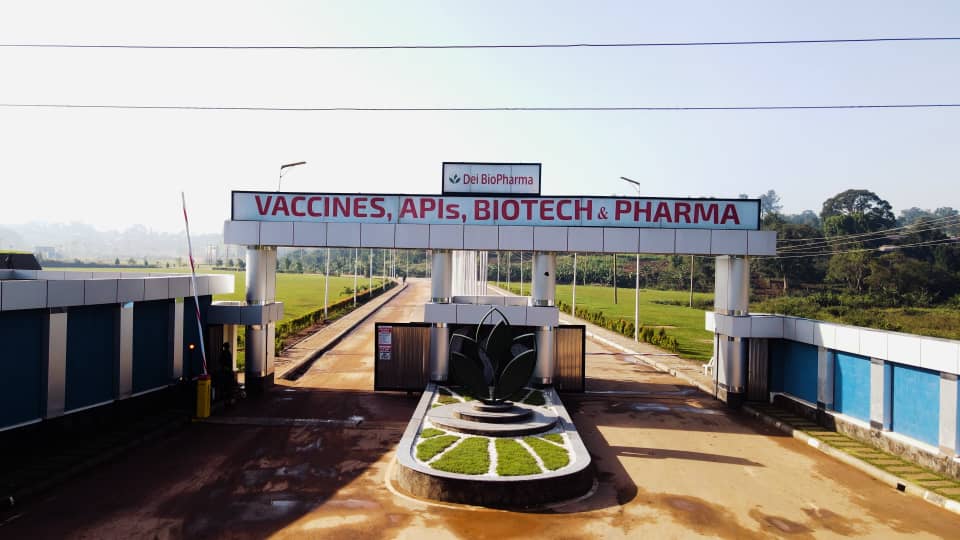In a major victory for health equity, Ugandan biotech firm DEI BioPharma has announced plans to manufacture Lenacapavir—a revolutionary HIV treatment recently approved by the U.S. Food and Drug Administration (FDA)—at an affordable cost of less than $50 (approx. UGX 180,000) for patients across Africa and other low-income regions.
The announcement marks a historic milestone in the fight against HIV/AIDS, as DEI BioPharma becomes the first company globally to commit to producing the drug at a fraction of its current global market price. In developed markets, Lenacapavir, marketed under the brand name Yeztugo by U.S. pharmaceutical giant Gilead Sciences, is priced at a staggering $28,000 per year.
In contrast, DEI BioPharma plans to launch production within 18 months, using the intellectual property flexibility granted under the WTO TRIPS Agreement, which allows Least Developed Countries (LDCs) like Uganda to legally manufacture patented medicines without breaching international laws until 2034.
“This will be the first complete treatment of HIV in Africa at a price our people can afford,” said Dr. Matthias Magoola, founder and managing director of DEI BioPharma. “Africa continues to bear the highest burden of HIV, and access has always been the missing link. We are changing that, starting now.”
Lenacapavir, a long-acting capsid inhibitor, is taken just twice a year, a significant shift from current daily antiretroviral therapy (ART). Its low dosing frequency could be game-changing in improving adherence and reducing stigma.
According to UNAIDS, over 25 million people in Africa are living with HIV, yet access to the latest treatments remains limited due to pricing barriers. DEI’s move could turn a high-cost innovation into a frontline therapy for millions, significantly improving outcomes and lowering transmission rates.
The initiative is part of DEI BioPharma’s broader mission to democratise access to life-saving medicines. From its state-of-the-art biotech campus in Matugga, just outside Kampala, the company plans to expand production of active pharmaceutical ingredients (APIs) for malaria, diabetes, hepatitis, and cancer treatments—many of which are currently unaffordable for patients in Africa.
Commissioned in 2021 by Ugandan President Yoweri Museveni and Kenyan President William Ruto, the Matugga facility is one of the most ambitious biotech ventures in Africa. With 30 production units and a capacity to manufacture up to one billion doses of mRNA vaccines annually, the plant is equipped to meet global regulatory standards, including those of the U.S. FDA, European Medicines Agency (EMA) and World Health Organization (WHO).
The company has already filed over 100 patents with the U.S. Patent and Trademark Office, positioning itself as a pioneer in indigenous African scientific innovation.
“This is not just about medicine—this is about sovereignty,” said Dr. Magoola. “We’re asserting that Uganda and Africa can innovate, manufacture, and lead in biotechnology at the global level.”
The ripple effects of this initiative go beyond public health. DEI BioPharma expects to create over 40,000 jobs, providing a major boost to Uganda’s scientific talent base, manufacturing sector, and overall economy. This includes opportunities for biochemists, pharmacists, engineers, researchers, and logistics personnel.
While critics may point to the logistical and regulatory hurdles involved in producing such a complex drug, DEI BioPharma’s infrastructure and international backing suggest that the firm is well-positioned to deliver on its promise.
As the world grapples with deepening global health inequality, DEI BioPharma’s intervention offers a powerful message: affordable healthcare is possible when innovation meets political will and a deep sense of social justice.
This bold step could become a blueprint for how developing nations can break dependence on Western pharmaceutical supply chains and assert control over their healthcare futures.
